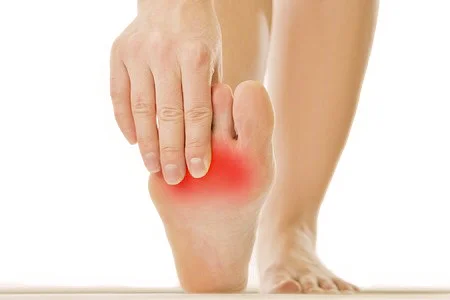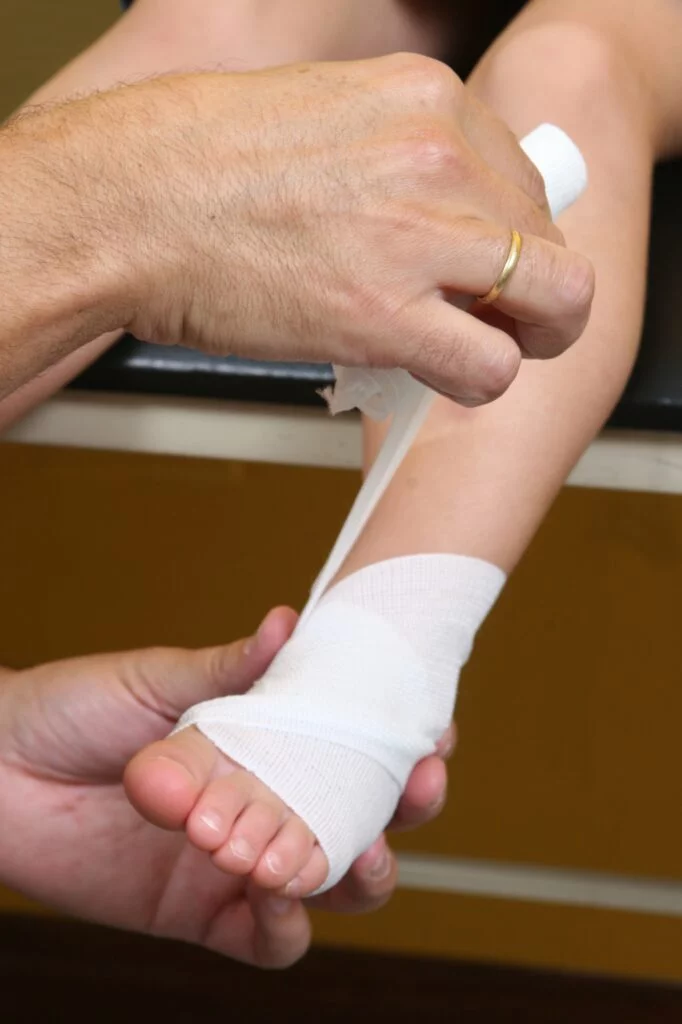Table of Contents
Foot Pain services offered in Henderson, NV
Foot Pain FAQs
What causes foot pain?
Foot pain has numerous possible causes, including:
Acute injuries
Muscle or tendon strains, ligament sprains, and fractures are common causes of foot pain.
Overuse injuries
Overuse injuries like tendonitis and plantar fasciitis (heel pain) develop when the tissues come under repeated, long-term stress. Tiny tears build up over time, creating inflammation and pain.
Bone and joint conditions
Arthritis, especially osteoarthritis, rheumatoid arthritis, and gout, is responsible for a great deal of foot pain. Other joint problems in the feet include bunions and hammertoe.
Structural abnormalities
Structural abnormalities like flat feet and high arches often cause no problems. But the imbalance in your foot can strain other structures excessively, causing aching and pain.
Vascular disorders
Vein and artery problems affect your circulation, depriving your feet of oxygen and nutrients or causing tissue deterioration. These conditions can lead to ulcers — open wounds prone to infection and difficult to heal.
Infections
Fungal infections like athlete’s foot and toenail fungus aren’t painful if caught early but may be sore when left untreated. Severe or infected ingrown toenails can also cause foot pain.
Your risk of foot pain increases if you carry excess body weight, overtrain, or wear ill-fitting or unsupportive shoes.
What symptoms might accompany foot pain?
Depending on your condition, you might notice several additional symptoms, including:
- Inability to bear weight
- Swelling
- Redness
- Warmth
- Burning sensation
- Numbness
- Tingling
- Reduced range of motion
- Limited mobility
Mild foot pain might be short-lived and resolve with rest and appropriate home treatment. However, you should visit Las Vegas Foot and Ankle Centers for moderate to severe foot pain or pain that persists despite reasonable care.
How is foot pain treated?
Footwear changes, physical therapy, ice or heat, and rest are important for reducing foot pain. Other treatments include:
Wound care
Wound care for ulcers includes debridement (removing diseased tissue), topical medications, bandaging, padding, skin grafts, and wound drainage.
Orthotics
Orthotics are inserts in your shoes that support, realign, and protect your feet and ankles.
Supports
Supportive bandages, splints, and braces could all help alleviate foot pain. You might also benefit from wearing diabetic shoes.
Medications
Anti-inflammatory medicines help reduce pain and inflammation. Your podiatrist might suggest a corticosteroid injection into the inflamed tissues for persistent foot pain.
Surgery
When other treatments don’t relieve your foot pain, or the damage can’t heal itself, you might need surgery.
Looking to schedule an appointment with a physician?
Call Las Vegas Foot and Ankle Centers or book an appointment online today to effectively relieve foot pain.


